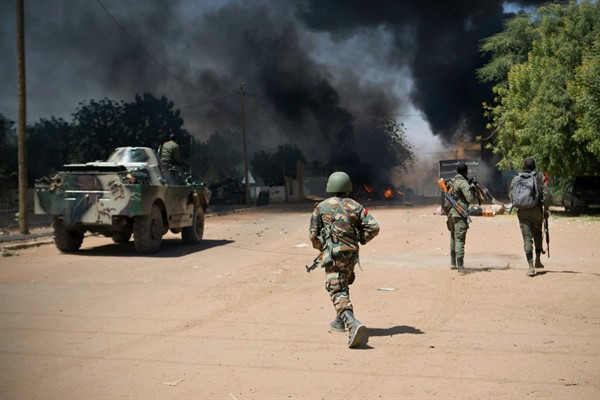France announced earlier this month that its armed forces had killed Abdelmalek Droukdel, the emir of al-Qaida in the Islamic Maghreb, or AQIM, during a June 3 military operation in northern Mali. The operation, carried out by French troops with the help of intelligence and surveillance aircraft provided by the United States, represents a rare, quantifiable victory for France and its counterterrorism partners in the region as they struggle to contain a bloody insurgency by jihadist groups.
A veteran of Algeria’s brutal civil war in the 1990s, Droukdel’s rise and fall in many ways mirrors the fortunes of the organization he led. As recently as 2012, AQIM was widely considered the most well-financed al-Qaida franchise in the world, reportedly raking in tens of millions of dollars annually through kidnapping for ransom and smuggling contraband. That revenue allowed it to expand its influence throughout the Sahel, as AQIM formed a key component of the jihadist takeover of northern Mali in 2012, only to be subsequently driven from its Malian strongholds by a French-led military intervention in 2013.
Today, AQIM is one of several jihadist factions operating in the region, constituting just one part of a broader al-Qaida-aligned coalition called Jama’at Nusrat al-Islam wal-Muslimin, or JNIM. According to experts, while Droukdel’s death is a direct blow to AQIM, it is not a major setback to the other jihadist insurgencies that are rapidly expanding their influence throughout much of the Sahel. “AQIM have already been in decline, and whoever is going to replace Droukdel would have an impossible mission trying to revive the group in Algeria,” says Rida Lyammouri, a senior fellow at the Policy Center for the New South, a Morocco-based think tank.

